ASD File: ACN
AUBURN SCHOOL DISTRICT
NURSING MOTHERS ACCOMMODATION
A. Statement of Purpose
The District provides a supportive environment as to time and place for employees
(collectively “nursing mothers). Subject to the terms and exceptions set forth in this
policy, the District will accommodate the needs of nursing mothers by providing
reasonable times and suitable spaces for nursing mothers to nurse during school and
work hours for one year after the birth of the child. Nursing for purposes of this policy
will include expression of milk by manual or mechanical means.
No nursing mother will be discriminated against for nursing or nursing related activities
as provided in this policy, and reasonable efforts will be made to assist nursing mothers
in meeting their infant feeding goals while at work or school.
B. Accommodation Notice and Plans
A nursing or expectant mother should contact the building principal or employee’s
supervisor at least two weeks before the need for nursing accommodations arises. The
District will endeavor to meet the break and space needs of each nursing mother.
However, when ordinary accommodations (as discussed below) will create undue
hardship to the operations of the school/workplace, the District will work with the nursing
mother to determine whether other acceptable accommodations may be made. Such
other accommodations could include such items as a change in work/class assignments,
or schedules. When acceptable accommodations are unattainable, the building principal
or other administrator working with the nursing mother should consult with the District’s
Human Rights/Non-Discrimination Officer or Superintendent.
A nursing accommodation plan should be revisited upon the nursing mother’s request, or
at least every three months, with adjustments made to the accommodations for breaks
as nursing needs change.
C. Reasonable Time to Express Milk during the School Day
Absent undue hardship or other accommodations as established under Section B, above,
a nursing mother will have a minimum of three opportunities (“nursing period”) during a
work or school day, at agreed upon intervals (which should include flexibility as
appropriate and practicable) for the purpose of nursing or to address other needs
relating to nursing. An employee can use usual break and meal periods if she chooses.
A nursing mother who is an hourly employee will be paid during nursing periods. Nursing
mothers shall not be required to “make up” time relating to the use of unpaid nursing
periods.
D. Suitable Private Areas for Nursing
Nursing mothers will be provided with a private place, other than a bathroom, in each
school district building in which a nursing mother spends her working or school day. The
nursing area:
1. May be temporary or permanent.
2. Shall be shielded from view and free from intrusion by other persons, including
without limitation other staff or students;
3. Shall be within a reasonable walk to the nursing mothers work-station or
classroom unless otherwise agreed by the nursing mother;
4. Have at a minimum an electrical outlet and a chair if feasible;
5. Have a sink with running water if feasible, or be in proximity to one;
6. Have a refrigerator for breast milk storage if feasible, or be in proximity to one;
and
7. Shall be cleaned regularly by District staff assigned to that duty.
E. Nursing Mother Responsibilities.
Nursing mothers will:
1. Provide at least two weeks advance notice of the need for nursing
accommodations, preferably prior to their return to school following the birth of
the child. This will allow school administrators the opportunity to establish a
location and work out scheduling issues.
2. Maintain the nursing area by wiping down surfaces with antibacterial wipes so the
area is clean for the next user.
3. Provide their own supplies as is necessary.
F. Prohibited conduct.
Any intentional act which violates a nursing mother’s privacy, aims to frustrate a nursing
mother’s intentions to use the nursing facilities, or constitutes harassment on account of
a nursing mother’s needs or breastfeeding status is prohibited, and shall be treated as
violation of the applicable code of conduct, with possible disciplinary consequences and
may constitute sexual harassment and reported to the Title IX Coordinator.
G. Dissemination of policy.
This policy shall be summarized in applicable employee handbook.
Legal References: 20 U.S.C 1681, et seq, Title IX of the Education Amendments of 1972, 42
U.S.C. 2000ggPregnant Worker Fairness Act (“PWFA”),42 U.S.C. 218dPump for Nursing Mothers
Act (“PUMP Act”)
Adopted: November 14, 2023
